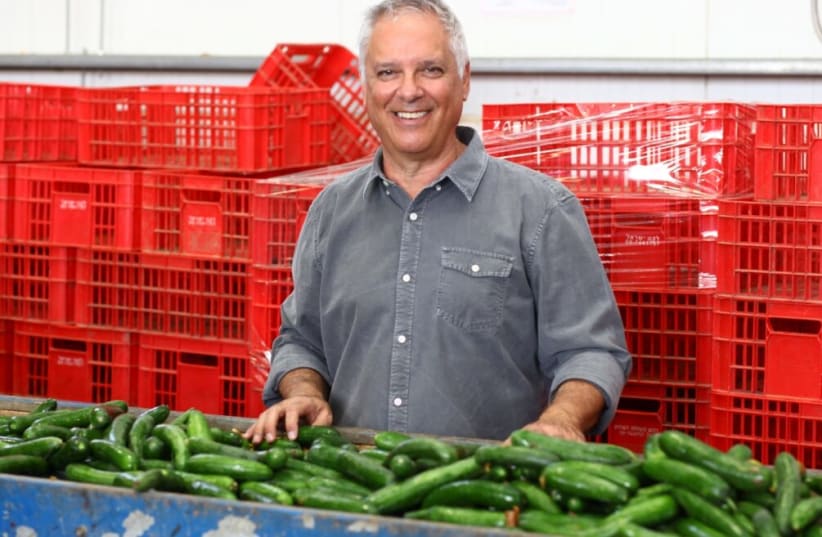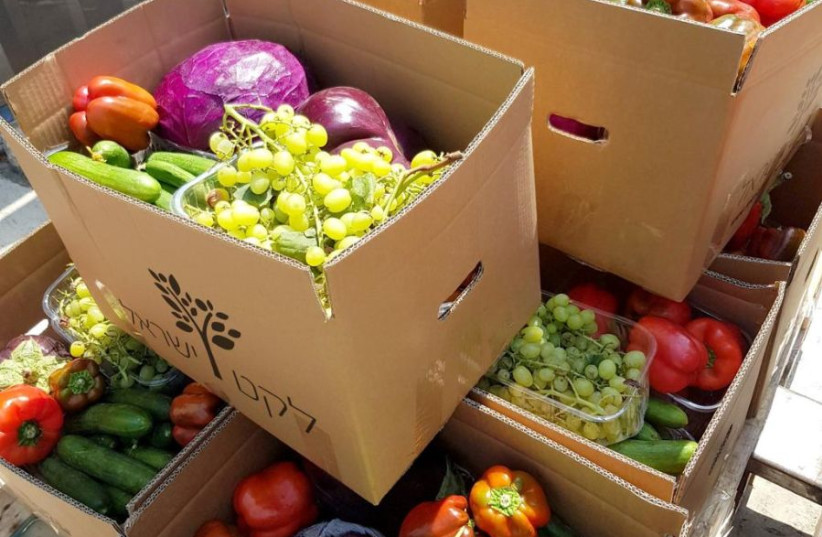Donating food to the needy before every Jewish holiday was a form of charity my parents cherished. Hence it was only natural for me to be drawn to Leket Israel, Israel’s National Food Bank, a registered nonprofit and the leading food rescue organization in this country.
It was started in 2003 by a young new immigrant from the US named Joseph Gitler, who was shocked at the amount of food waste he saw at weddings and other celebrations. He started to collect surplus meals from catering halls and deliver them in his car to the needy. He called it “Table to Table.” It could have easily been called “The Power of One.”
Numerous volunteers joined him within months, and his Ra’anana garage was replaced by a storage truck. A couple of years later storage points were opened in the north.
A major turning point came in 2007, when hi-tech entrepreneur Gidi Kroch joined Leket upon his return from the US, bringing onboard his logistical skills.
Kroch, who was chosen as one of the most influential Jews worldwide in 2020, described the chairman Gitler as “the visionary” and himself as the “man of action.”
Leket Israel has since experienced a meteoric rise – last year it distributed over 2.4 million meals.
Leket merged with Israel’s Food Bank in 2010, and its budget is now NIS 75 million. Half the donations come from the US mainly the Jewish Federations of New Jersey and Philadelphia. The rest are donations from Israel. Purim gift cards of Leket have recently been introduced as a form of donation.
In the US, the government actually supports food security in its budget. In Israel, however, it was only recently that the new government allocated funds for food security.
According to statistics, the average Israeli family throws away NIS 3,600 worth of food annually. Hence the food rescue project has huge economic, social and environmental benefits.
Six years ago Kroch made three strategic decisions:
- To collect surplus food only from hotels and the army
- To rescue produce from farmers
- Focus on food security
In Eilat alone, 19 hotels participate in the program, and a thousand rescued meals are distributed daily in the city.
Leket has constantly reinvented itself. After receiving a thank-you letter from a principal of a school in Ofakim for providing much-needed sandwiches for lunch and helping prolong the school day, Kroch expanded the program to 12 schools. Many more schools are on the waiting list. The old saying attributed to Napoleon Bonaparte, “an army marches on its stomach,” may apply to school kids as well. So many schoolchildren attribute their scholastic success to the free lunches that they receive. When schools were closed during corona, the rescued food was delivered to public housing residents.
Kroch said that there is so much surplus agricultural produce in Israel that the market simply cannot absorb it. In order that produce is not left to rot, the “Giving Tree” project has been introduced whereby volunteers help pick fruits and vegetables that is falling off the trees. For every shekel Leket spends on fruits and vegetables, eight are being generated in return.
Leket Israel distributes to over 200 charity organizations for Jews and Arabs, religious and secular.
One recent project embodies the idea of “making lemonades out of lemons.” Leket found itself with surplus tomatoes, and Kroch decided to make soups and freeze them. To date, almost 100,000 half-liter soup units have been distributed and delivered to needy elderly. Kroch said that no salads are distributed but rather raw fruits and vegetables, to enable the elderly to participate in the process of food preparation.
What makes this project so amazing is how it brings together giving and receiving, the young and the old, and thereby create a community. In Deuteronomy, there is the prohibition to destroy products if humans can benefit from them. As another saying goes, “waste not, want not.”
In 2021, Leket rescued 25,000 tons of agricultural produce. With the new study just out placing Israel in the sixth-highest cost of groceries in the world, an organization such as Leket Israel becomes even more indispensable. ■
Shoshana Tita is a writer, journalist and director of Torah Life Center of Potomac, Maryland.

